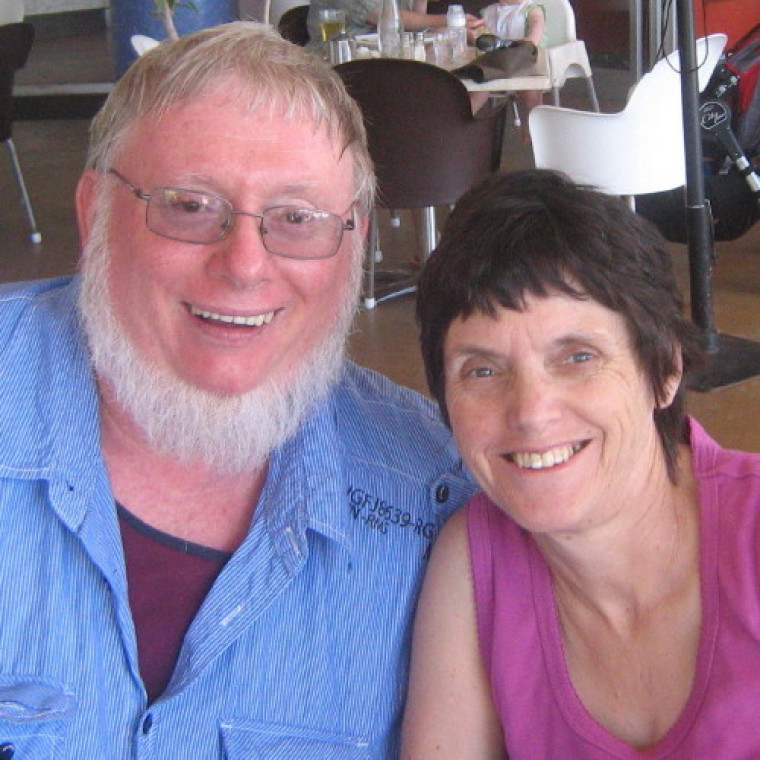
Mark Tronson is a retired Baptist minister who founded in 1982 the Sports and Leisure Ministry (under Heads of Churches), was the Australian Cricket Team chaplain for 17 years to 2001 and a receiptent of the Olympic Ministry Medal presented by Olympian of the Century Carl Lewis in 2009, an author of 25 books and a prolific writer.
In this series on Miracles, Mark Tronson is taking the reader of a journey of faith through his own ministry illustrating time and time again how the Lord's touch blossomed a situation where the only response was to offer praise to the Almighty.
Christian Ministries and Missions across the centuries can point to similar outcomes which has resulted not so much in new buildings but in both the intangible and tangible such as changed lives for Jesus or the excess of alcohol converted into children's shoes.
This third article on miracles centres on the Athlete Respite ministry that Mark Tronson has developed since 1989 which now boasts in the Lord, three athlete respite facilities, Moruya (NSW south coast), Tweed Heads (NSW north coast) and Laguna Quays (Qld Whitsundays).
In 1982 Mark Tronson attended a World Congress on Sports Mission held in Hong Kong run by an American sports ministry, and at that conference was Austrian winter sports star and coach Gernot Kunzelman.
Gernot Kunzelman in the sixties was that nation's sports star celebrity and who later went on to coach the Canadian Winter Olympic Team, however he and his wife Gertrude's greatest claim to fame was that they were committed Christians, followers of Jesus.
They came up with a novel expression of their faith in the Lord Jesus by establishing a Ski Lodge at Lake Tauernhof in the Austrian Alps, which later became part of the International Torchbearer's Ministry (in Australia, Torchbearer's runs Capenwray bible college and conference centre near Bowral on the NSW southern highlands).
Gernot and Gertrud Kunzelman came up with the idea of athlete respite for fellow Austrian and International winter sport athletes where they could visit in a spirit of friendship and familiarity (in winter ski, in summer mountaineering and orienteering) and the cost to enjoy this respite was a bible devotional around the fire of an evening.
Everyone who visited knew and trusted Gernot and Gertrud Kunzelman as the facility was well patronised, and no one blinked an eye at Gernot's evening chit chats, it was rather, part of the experience of visiting. In Christian terms, it became a rallying call for many young people who became followers of Jesus. It was low key, personal and credible.
Mark Tronson realised that the Christian scene in Australia did not follow the loud and excitable US model of mission and church life, rather it was much more aligned to this Austrian model developed by Gernot Kunzelman. A vision was seeded in Mark Tronson's heart and he recognised that in Australia, it was the beach, not the mountain, that would facilitate such an idea.
Seven years later with the help of businessman and philanthropist Mr Basil Sellers the initial Australian athlete respite facility's first sod was turned. Mark Tronson recognised that for Canberra people the beach playground was the south coast and he secured a 10 acre rain forest allotment in Moruya near the beach.
He arranged for Australian Institute of Sport delegates to attend the official opening of Basil Sellers House in Moruya on the 2 September 1992 where he had Nick Farr-Jones (Rugby) and Jeanine Treharne (Yachting) cut the ribbon.
Mark Tronson philosophically handed the key to the Australian Institute of Sport delegates for their exclusive use. Mark and Delma and their family had relocated from Sydney to Moruya to establish the athlete respite ministry. The Bible Society provided 1,000 Sports New Testaments to hand to each young athlete who visited.
Meanwhile the Australian Institute of Sport had launched their ACE program, Athlete Career and Education, where young athletes were given a broader introduction to life other than a tunnel vision of sport. In some sense, athlete respite fell in line with this new program, as officials recognised there was a need for athletes to take respite from the concrete edifices of modern sport.
The athlete respite availability was functioned from the Australian Institute of Sport's Elite Athlete "Residential" program where Laurie Fisher (later to become the ACT Brumbies Rugby coach) and later Barry Barnes (former Olympic Boomers and Canberra Cannons NBL coach) were very supportive managers. Mark had introduced sports chaplaincy to Barry Barnes when he was the Canberra Cannons coach several years previously.
Over all these many years, team squads, small athlete groups, coaches and families have visited Basil Sellers House. Mark and Delma Tronson spent time with each group of visitors and many an athlete sought out AIS Chaplain Peter Nelson to explore what they had heard.
Delma tells the story that on one occasion Mark was overseas and it fell to her to address the Boxing Sqaud (visited regularly) who complained as her 'talk' was way too short. Delma then spent nearly an hour answering the athletes' questions.
In 2006 the second athlete respite facility, Basil Sellers Tweed was opened when Mark and Delma Tronson relocated to Tweed Heads. The AIS had six sport units based in SE Qld and coaches and families have made use of this facility, both from SE Qld and from Canberra.
Then in 2011 the Basil Sellers Laguna Quays Respite facility was launched on the Whitsundays.
Mark Tronson explains that the term "respite" is a nationally accredited and understood term, and it simply fell into place at the right time. This was the miracle, and moreover there were AIS people who recognised "respite" as an intrinsic value to athletes' lives. Mark as the Australian Cricket Team chaplain gave the respite ministry a credibility not unlike Gernot Kunzelman's experience in Austria.
